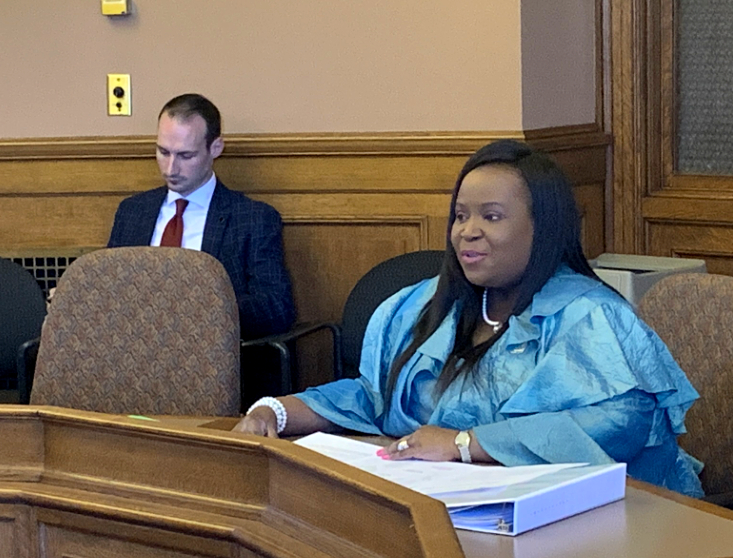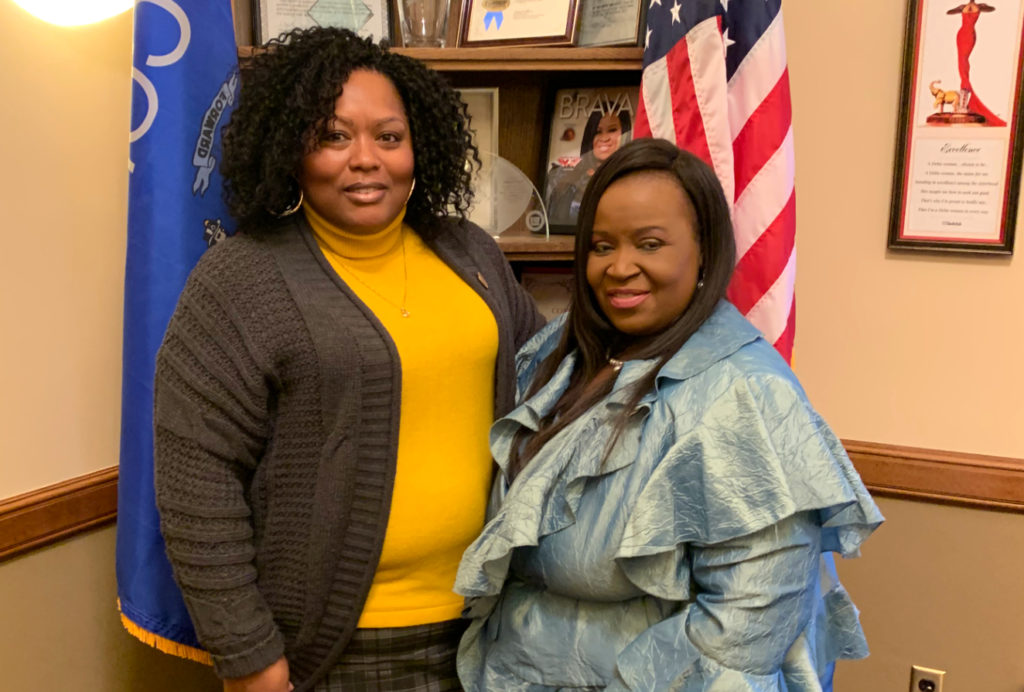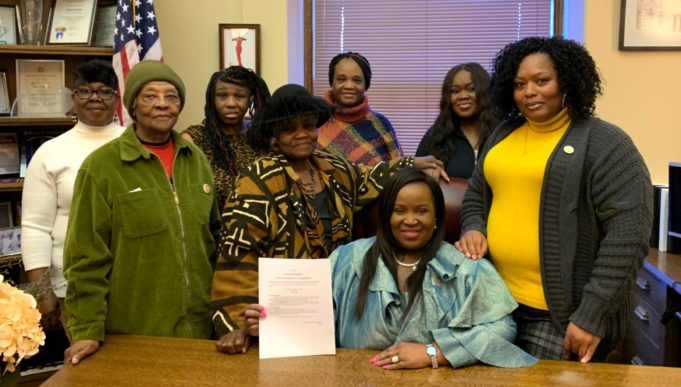State Rep. Shelia Stubbs (D-Madison), Representative Shae Sortwell (R-Two Rivers), and Sen. Latonya Johnson (D-Milwaukee) introduced AB 899 at a press conference on Feb. 13. The bill is designed to eliminate arduous regulations in regard to hair braiding.
“Braiding is an art. It came from the motherland of Africa from the doors of no return down to the sand in the bellow of the boat to America,” Rep. Stubbs mother, Linda Hoskins, the former president of the Madison chapter of the National Association for the Advancement of Colored People (NAACP), said in a public hearing in front of assembly members on Thursday morning.
She described hair braiding as a cultural practice to members of the assembly, an activity seen as common sense to people of African descent. Braiders are able to work without a license in 23 states, 12 have ended licenses for hair braiders in 2015, according to the Institute for Justice. Braiders work without a license in neighboring states such as Minnesota and Iowa.
“Braiding does not pose any threat to public safety since it does not use heat or chemicals. Additionally, it is extremely rare for braiders to receive complaints,” Rep. Stubbs said.
She said barriers to natural hair braiding create a burden on people who could profit from their skill, limiting opportunities for entrepreneurship for Black women. Stubbs also said African-style hair braiding offers many talented practitioners pathways to self-sufficiency.

“Under this legislation, people are no longer burdened by strict licensing requirements. They can spend more time honing their craft instead of participating in programs that have little to do with braiding, as more cosmetology schools do not teach natural braiding styles or techniques,” Rep. Stubbs said.
Institute for Justice Attorney Jessica Gandy offered her support for support Assembly Bill 899. The organization litigated civil rights cases in over 13 states, including Minnesota. In Louisiana, hair braiders must undergo 500 hours of training. In 2012, there were only 32 licensed braiders in 2012.
Attorney Yolanda McGowan, Division Administrator for Policy Development for the Department of Safety and Professional Services (DSPS), was only able to recall one complaint within the last decade. She also explained enforcing licensure for hair braiders is almost impossible to enforce since braiders often practice at home.
“I love braids. I love seeing it. If they take that away from women, it’s like making a license for a ponytail,” Sandy Henderson said.
She wore braids for years and often braided her daughter’s hair as well. Henderson also described braiding as a tradition in her family and a part of her daily life. She does not believe hair braiders should have to obtain a license through the state.

“Current Wisconsin law requires that a person must obtain a barbering or cosmetology license in order to perform natural hair braiding. This regulation stifles the ability for individuals to practice or profit from their skill,” Rep. Stubbs said.
The next step will be to request the Committee Chair, Rep. Cody Horlacher (R-Mukwonago) to hold an Executive Hearing on the bill so that it can be voted on. So far, the bill has the support of Sen. LaTonya Johnson (D-Milwaukee) and Rep. Shae Sortwell (R-Two Rivers) who both are also working on the bill while receiving additional support from Rep. David Crowley (D-Milwaukee), Sen. Chris Kapenga (R-Delafield), and others.
This bill comes after Rep. LaKeshia Myers (D-Milwaukee) introduced legislation last summer intended to end natural hair discrimination in the state of Wisconsin. The CROWN Act, “Creating a Respectful and Open World for Natural Hair,” has already passed in California, New York and New Jersey, and in Colorado’s House of Representatives last week. Myers, who sits on the committee reviewing Assembly Bill 899, was not present for the public hearing for the hair braiding bill.
“This legislation will allow for more individuals, especially female entrepreneurs, to practice braiding. The bill will create more jobs, less people would be doing hair from home, and the state would generate more revenue,” Rep. Stubbs said.










